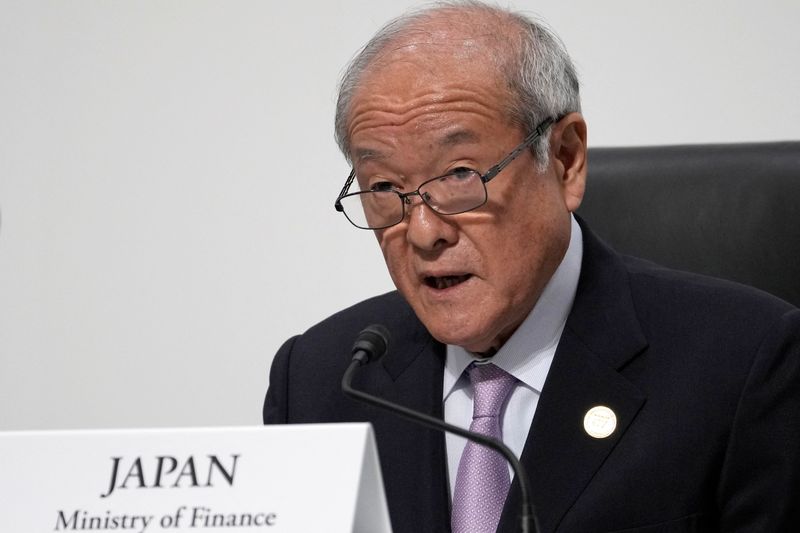Japan’s Suzuki: Not targeting absolute levels on FX intervention
2023.08.15 07:55

© Reuters. FILE PHOTO: Japanese Finance Minister Shunichi Suzuki speaks during the presidency press conference at the G7 meeting of finance ministers and central bank governors, at Toki Messe in Niigata, Japan, Saturday, May 13, 2023. Shuji Kajiyama/Pool via REUTER
By Tetsushi Kajimoto
TOKYO (Reuters) -Japanese Finance Minister Shunichi Suzuki said on Tuesday that authorities are not targeting absolute currency levels when it comes to intervening in the market.
Suzuki made the remark at a news conference when asked about the government’s stance on intervention, as the dollar broke above the 145 yen threshold, a level that in September 2022 triggered Japan’s first yen-buying operation since 1998.
“It’s important for the currency market to move stably reflecting fundamentals. Excessive volatility is undesirable. That’s our basic stance,” Suzuki said. “We’re watching market moves with a strong sense of urgency. We’ll respond appropriately to excessive moves.”
When asked whether 145 yen is considered a trigger point for intervention, Suzuki said: “We don’t intend to have any absolute number, or defend that when it is breached.”
Japan will assess whether moves are speculative, volatile or based on fundamentals, rather than focusing on absolute levels, Suzuki added.
“If there are speculative moves, corporate future management plans or households will be affected, then we will take necessary action.”
It is rare for Japanese authorities to support the currency because they tend to worry that excessive yen strength, rather than weakness, would deal a blow to all-important exports and push Japanese manufacturers overseas.
The last time Japan intervened by selling yen was in 2011, when the country was grappling with a spike in the currency, to avoid sliding deeper into deflation in the face of the U.S. Federal Reserve’s quantitative easing.
This time, Japan is facing the risk of the yen weakening as aggressive tightening by major central banks make the Bank of Japan an outlier as it sticks to its easing policy.
Japan’s top forex diplomat Masato Kanda said later on Tuesday that he would take appropriate steps against excessive currency moves, according to the Jiji news agency.
Kanda, the vice minister of finance for international affairs who supervised the country’s currency interventions late last year, said he was monitoring the market “with a high sense of urgency”, Jiji said.








